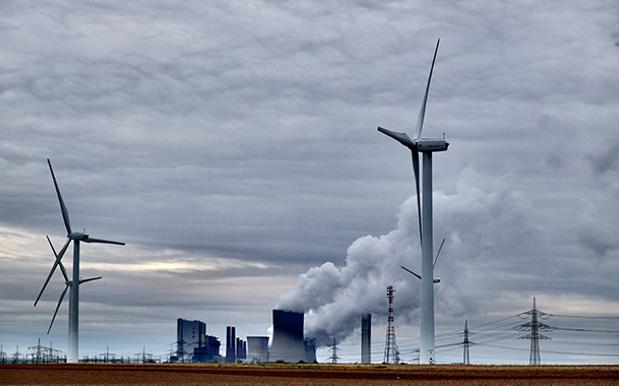This seems depressingly inevitable. It’s something of a sad irony that on the same day that Prime Minister Tony Abbott banged the well worn rhetorical drum about the Carbon Tax being “bad policy” whilst copping an almighty serve from Karl Stefanovic on the Today Show, we get stats that quite clearly show that the energy production sector has been more than happy to sink back into old familiar roles in the wake of the tax’s repeal, with emissions from the industry shown to have risen almost as soon as the paper hit the scrapheap.
According to energy consultants
Pitt & Sherry, the
National Electricity Market – which covers the Eastern states of Australia – registered a rise in greenhouse emissions of 3.2 million tonnes in the 12 months ending in November, compared to the 12 month period ending in June. What this means is emissions began to spike practically instantly following the binning of the Carbon Tax in mid-July. A spike in emissions this great in this short amount of time is not an anomaly, and represents systemic change to reflect the once-again relaxed legislative constraints placed upon large emitters – something the Carbon Tax was specifically designed to do,
and was successful at, rather than what the scare tactics of the
Liberal Government would have you believe in that it didn’t work and was patently aimed at small consumers, small businesses and familes. All are claims made via political spin that were (not to put too fine a point on it) complete and utter bullshit.
In fact the rate of climb in these figures is so great, it paints with a broad, bleak brush, even for Australia’s modest future emissions reduction targets.
“If this rate of increase were to continue for a year …NEM electricity generation emissions would by themselves increase Australia’s total emissions by 1.4 per cent,” the study stated.
And it’s not through consumers that the increase in emissions is originating, either. Demand for electricity remains at relatively subdued rates at bottom line consumer level. It’s from big producers increasing their usage of the extremely emissions-intesive brown coal that rates of emissions have spiked. Whilst on the opposite end of the scale, hydroelectricity production has waned, with Hydro Tasmania‘s November output registering its lowest production level in nearly five years. In addition, construction of wind farms have all but ground to a complete halt.
In fact, overall emissions would have climbed even higher in the quarter since the Tax was scrapped, had it not been for a surge in demand for cheap, lower-emissions gas in Queensland, which is being utilised before new export tariffs are imposed on the sector in the new year.
The long and short of it is people aren’t using more electricity than what they were. It’s just that since the Carbon Tax got scrapped, big producers are using dirtier fuel to provide it.
The new data represents a particularly awkward political hurdle for Australia, as Government prepares to send Foreign Minister Julie Bishop and Trade Minister Andrew Robb to Peru, where 190 countries will be gathering to lay groundwork for a Global Climate Treaty, which will be voted on in Paris next year.
Photo: Patrik Stollarz via Getty Images.








